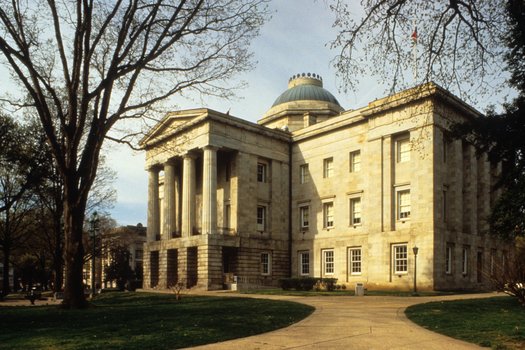November 18, 2014 – RALEIGH, N.C.
North Carolina lawmakers are likely enjoying some downtime after the legislative session and midterm election, but experts predict a tough session waiting for them on their return to Raleigh. A report from the Office of the State Controller indicates tax revenues are down by almost $400 million compared with this same time last year – a six percent drop in revenue. Alexandra Sirota, director of the North Carolina Budget and Tax Center, says it’s not a problem the State Assembly will be able to ignore in January.
“This is a serious issue,” she says. “It’s self imposed in that policymakers chose to reduce our revenue. Now they’re going to have to make choices about some pretty deep cuts.”
Sirota and others believe the decreased revenue is a result of personal and corporate income tax cuts. Additional tax cuts will take effect Jan. 1, unless lawmakers call a special session to stop the cuts from taking place. State revenue is expected to get a boost in the form of sales tax revenue from holiday shopping. Opponents of North Carolina’s recent tax cuts point to the problems experienced in Kansas, where large tax cuts have resulted in significant cuts to public education and have not resulted in a growth in the state’s economy as its governor predicted. Gerrick Brenner, executive director of Progress North Carolina Action, believes North Carolina could share a parallel experience with Kansas if action isn’t taken.
“There’s been a windfall for the wealthy and for corporations,” says Brenner. “Some people have actually had their taxes go up if you’re at the lower income brackets. And who is going to pay for this budget mess? It’s going to be our public schools, our universities, and vital services that need state funding to function.”
Brenner notes Governor Pat McCrory promised in his 2013 State of the State address that tax reform would not result in less revenue for the state. Sirota says her analysis indicates the state will have to cut programs or raise taxes in order to balance the budget, as mandated by the state constitution.
“What we’re seeing is that fewer dollars are coming in because the tax plan that was passed gave significant tax cuts to the wealthy and profitable corporations,” she says. “As a result, we don’t have the money to make investments for a stronger North Carolina.”
Stephanie Carson/Tommy Hough, Public News Service – NC
Read: Experts Predict Looming Budget Crisis in North Carolina Following Tax Cuts
Check out the North Carolina Budget and Tax Center for more on the state government’s efforts to starve itself.
